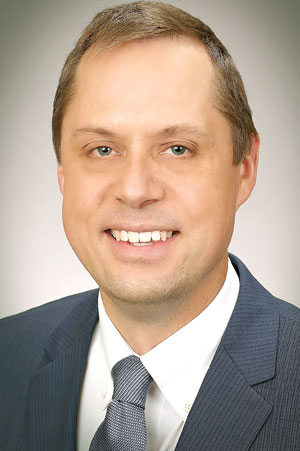Lawyers say a forthcoming report that may broaden the scope of family law could erode current standards and squeeze lawyers out of the marketplace.

In a report commissioned by the provincial government and the Law Society of Upper Canada, the former chief justice of the Ontario Court of Justice Annemarie Bonkalo will make recommendations that could impact family lawyers across Ontario.
Among the issues Bonkalo, currently a part-time judge, was tasked with was to consider widening the scope of family law to allow paralegals to practise in the area.
Some of those waiting for the report remain unconvinced that expanding the scope would promote access to justice and say it would also be to the detriment of the family law bar.
“Our primary question is how lowering the standards of professionals to practise in the area of family law, which is extremely complex and emotionally charged, how that’s going to contribute to access to justice,” says Michael Ras, executive director of the Federation of Ontario Law Associations.
“We fear the economic model, as fragile as it is, will be upset even more and will drive many family law lawyers out of the practice. How will lawyers leaving family law improve access to justice?”
The provincial government and Law Society of Upper Canada are commissioning the report, which is expected to be public soon. Bonkalo has been mandated to determine whether paralegals, law clerks and students should be allowed to handle certain matters in family law in the hopes of boosting access to justice.
In 2014-15, more than 57 per cent of Ontarians who engaged in matters in family court did not have legal representation, according to the provincial government.
Ras says the government should let other reforms such as bringing the whole province under a unified family court and expanding limited-scope retainers play out before even considering a widening of the scope of family law. Of particular concern to FOLA are the lawyers in small communities whose practices can include 20 to 25 per cent family law.
“If suddenly there is competition in town that is providing that same or similar level of service, maybe not to the full scope of what a lawyer can do but close, for lower rates, the economic logic suggests that the lawyer would just find other things to do,” says Ras. “So, instead of increasing access to justice, you would have one less lawyer doing family law or providing that service.”
Family lawyers question whether paralegals will be able to provide the same service, in what is considered a complex area of law, if the report recommends this.
Robert Shawyer, of Shawyer Family Law & Mediation PC, says giving paralegals the unfettered right to practise family law could lead to problems.
“They frankly just don’t have the training that lawyers do,” he says.
Jonathan Richardson, a family lawyer and partner with Augustine Bater Binks LLP, says he would like to see the report recommend the expansion of articling students in family law.
Currently, articling students are not allowed to appear in court in family law proceedings.
“That would certainly reduce costs to have the ability to have articling students appear on non-contentious matters and would provide good experience for the articling students as well,” he says.
A spokeswoman for the LSUC said the law society was waiting on the release of the report to provide comment.
“We know that navigating the system without legal assistance can be difficult and confusing, and we are committed to identifying ways to improve access to justice in family matters,” said a spokeswoman for Ontario Attorney General Yasir Naqvi.
“We are looking forward to making Justice Bonkalo’s report public shortly.”

 In a report commissioned by the provincial government and the Law Society of Upper Canada, the former chief justice of the Ontario Court of Justice Annemarie Bonkalo will make recommendations that could impact family lawyers across Ontario.
In a report commissioned by the provincial government and the Law Society of Upper Canada, the former chief justice of the Ontario Court of Justice Annemarie Bonkalo will make recommendations that could impact family lawyers across Ontario.